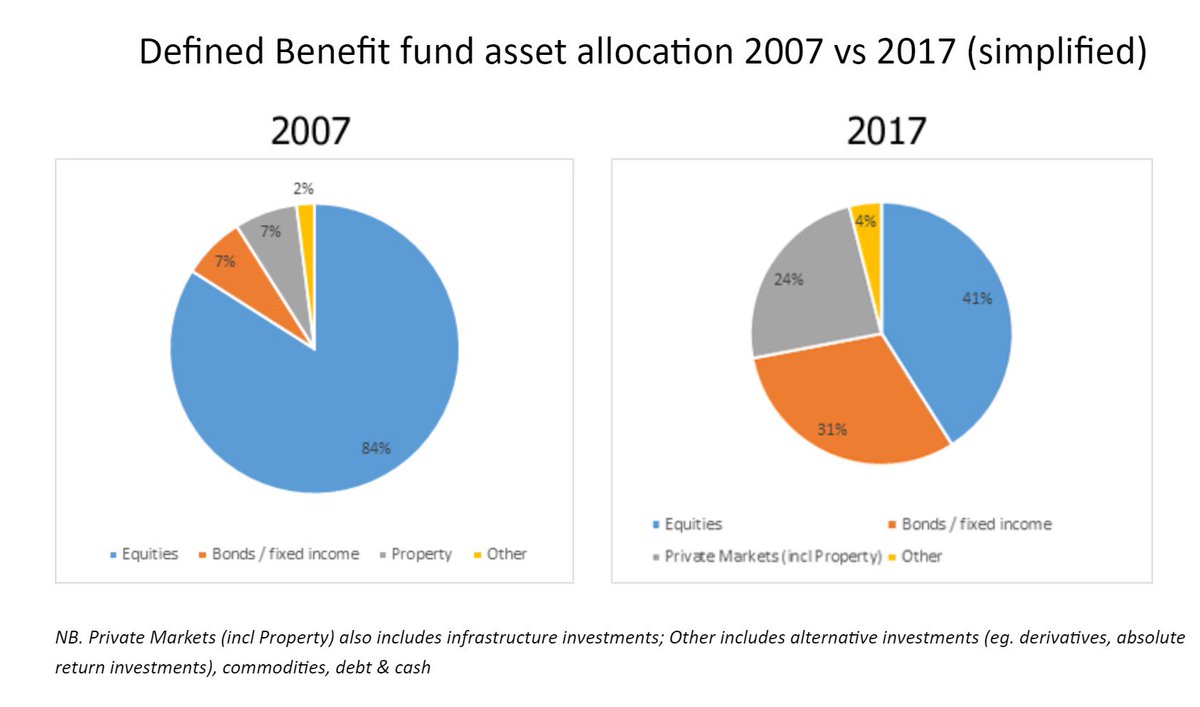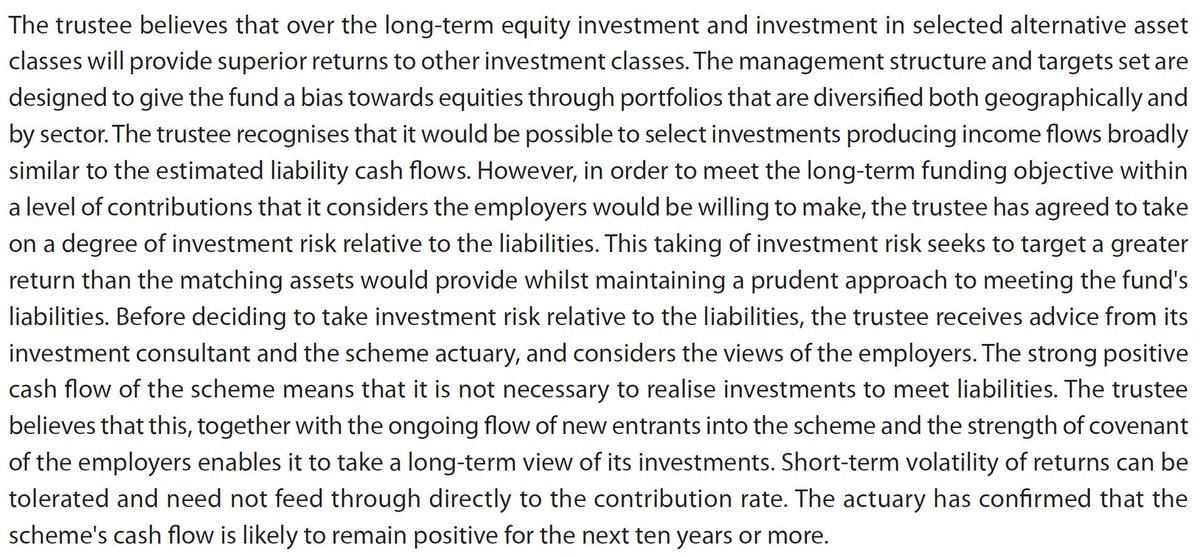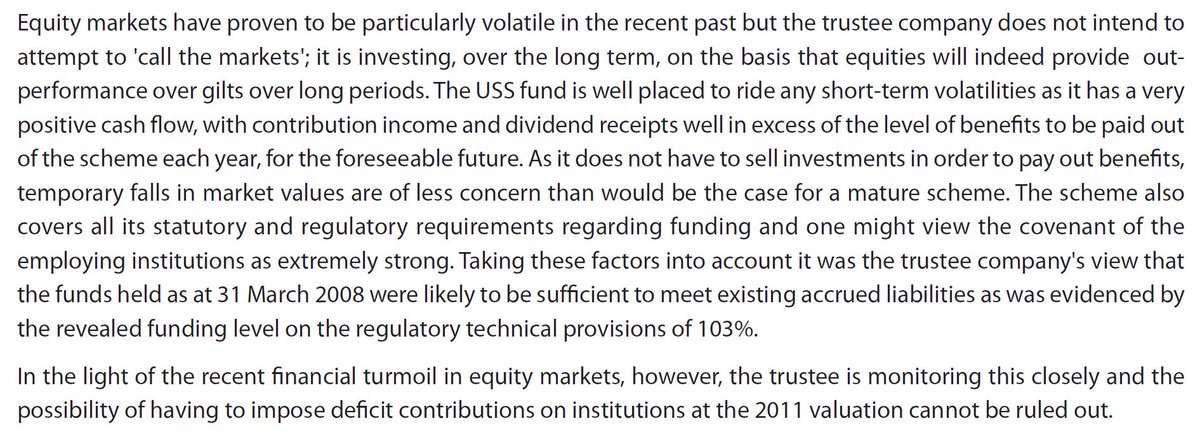


of returns can be tolerated and need not feed through directly to the contribution rate..." 2/
Limited (USSIM). ...The trustee board is committed to maintaining an in-house investment team for a large proportion of the fund." 7/



Get real-time email alerts when new unrolls are available from this author!
Twitter may remove this content at anytime, convert it as a PDF, save and print for later use!

1) Follow Thread Reader App on Twitter so you can easily mention us!
2) Go to a Twitter thread (series of Tweets by the same owner) and mention us with a keyword "unroll"
@threadreaderapp unroll
You can practice here first or read more on our help page!





